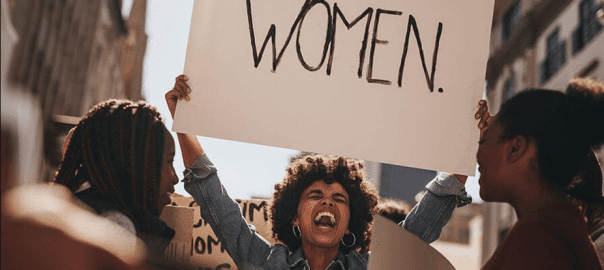July 25, 2023 — There have been many great male activists throughout history, such as Martin Luther King, Nelson Mandela, and Gandhi. However, it is true that women have played a disproportionately large role in the fight for human rights.
There are a few reasons for this. First, women have traditionally been excluded from power and decision-making, so they have had to find other ways to make their voices heard. Second, women are often more directly affected by human rights abuses, such as violence against women and girls. Third, women are often more collaborative and less hierarchical than men, which can be an asset in the fight for human rights.
Of course, there are also many men who are committed to human rights. However, it is clear that women have played a vital role in the advancement of human rights.
To say that men are “so bad at human rights” is a bit of an oversimplification. There are many men who have done great things for human rights, and there are also many women who have not been involved in the fight for human rights. However, it is true that women have been more marginalized in the past, and they have had to overcome more obstacles to achieve their goals.
Both men and women have a role to play in the fight for human rights. We need to work together to create a more just and equitable world for all people.
There are a few reasons why women are rarely acknowledged for their role in supporting human rights leaders.
- Gender bias. There is still a lot of gender bias in the world, and women’s contributions are often overlooked or undervalued. This is especially true in the field of human rights, which has traditionally been seen as a male domain.
- The spotlight effect. When we think of great human rights leaders, we tend to focus on the individual man or woman who made the headlines. We forget about the people who supported them behind the scenes, often including their spouses.
- The invisibility of care work. The work of caring for others is often invisible, and it is often seen as less important than other kinds of work. This is true even in the context of human rights activism, where the work of supporting a spouse or partner is often essential to their success.
In the case of Martin Luther King and Nelson Mandela, their spouses, Coretta Scott King and Winnie Madikizela-Mandela, were both strong and independent women who played a vital role in their husbands’ activism. Coretta Scott King was a tireless advocate for civil rights, and she helped to keep her husband’s movement going even when he was imprisoned. Winnie Madikizela-Mandela was also a prominent figure in the anti-apartheid movement, and she was imprisoned for her activism.
Despite their important contributions, Coretta Scott King and Winnie Madikizela-Mandela are often overshadowed by their husbands. This is a reflection of the broader problem of gender bias in the field of human rights. We need to do a better job of acknowledging the contributions of women who support human rights leaders, and we need to challenge the idea that care work is less important than other kinds of work.
Here are some ways to acknowledge the contributions of women in the fight for human rights:
- Include women’s stories in history books and textbooks.
- Give women more credit for their work in the media.
- Support organizations that work to promote gender equality in the field of human rights.
- Challenge gender bias in your own thinking and actions.
By taking these steps, we can help to ensure that women’s contributions to the fight for human rights are finally recognized.
Search related topics

